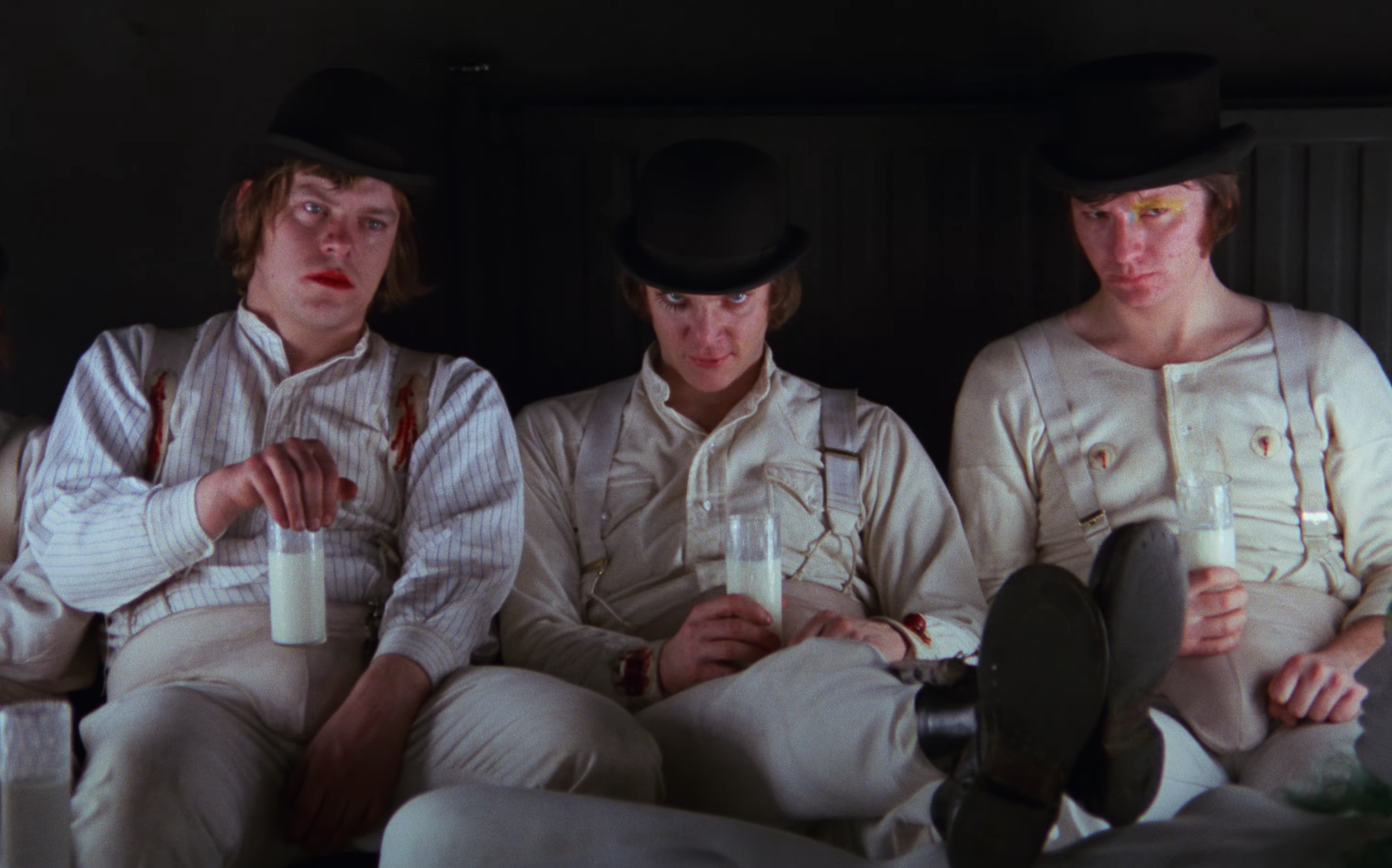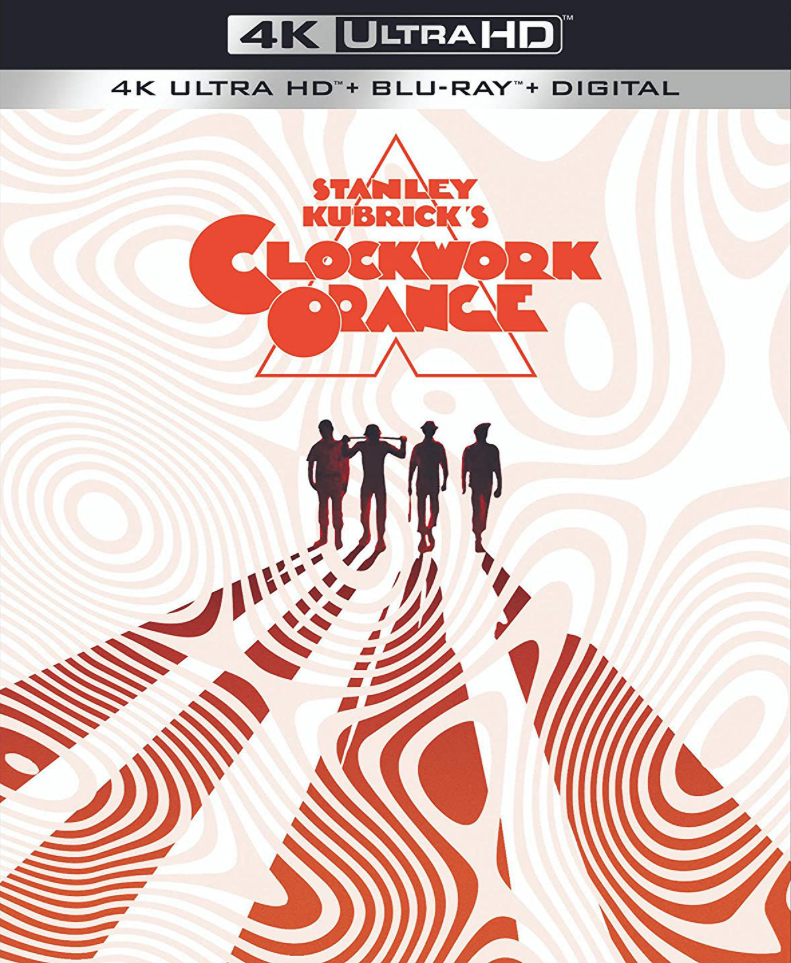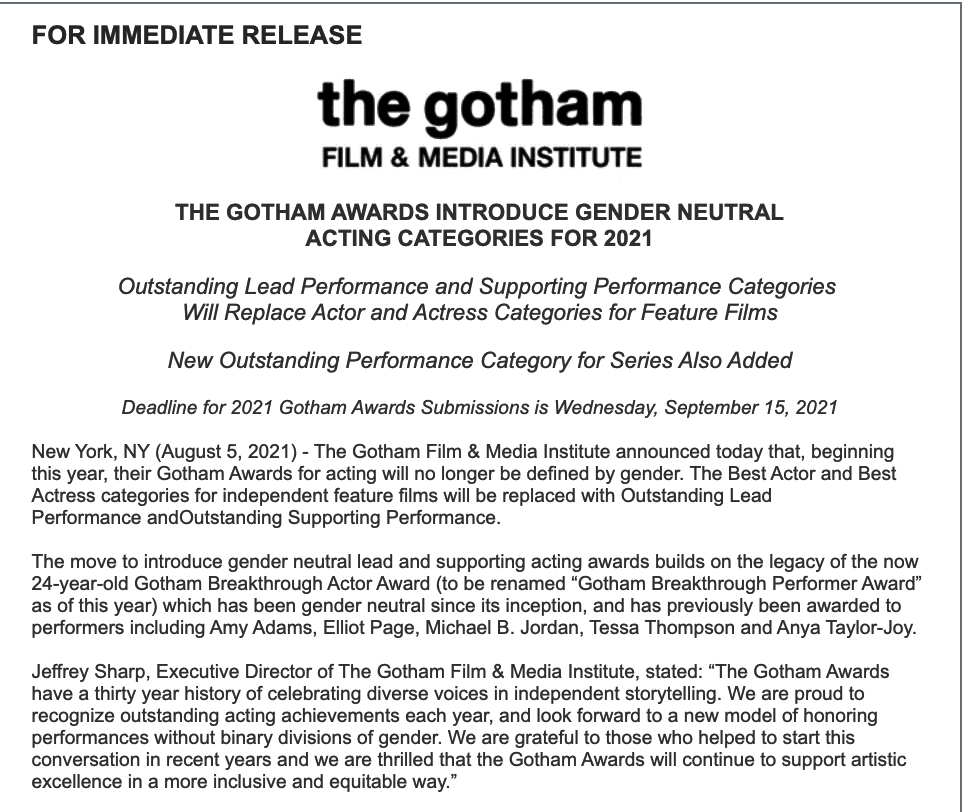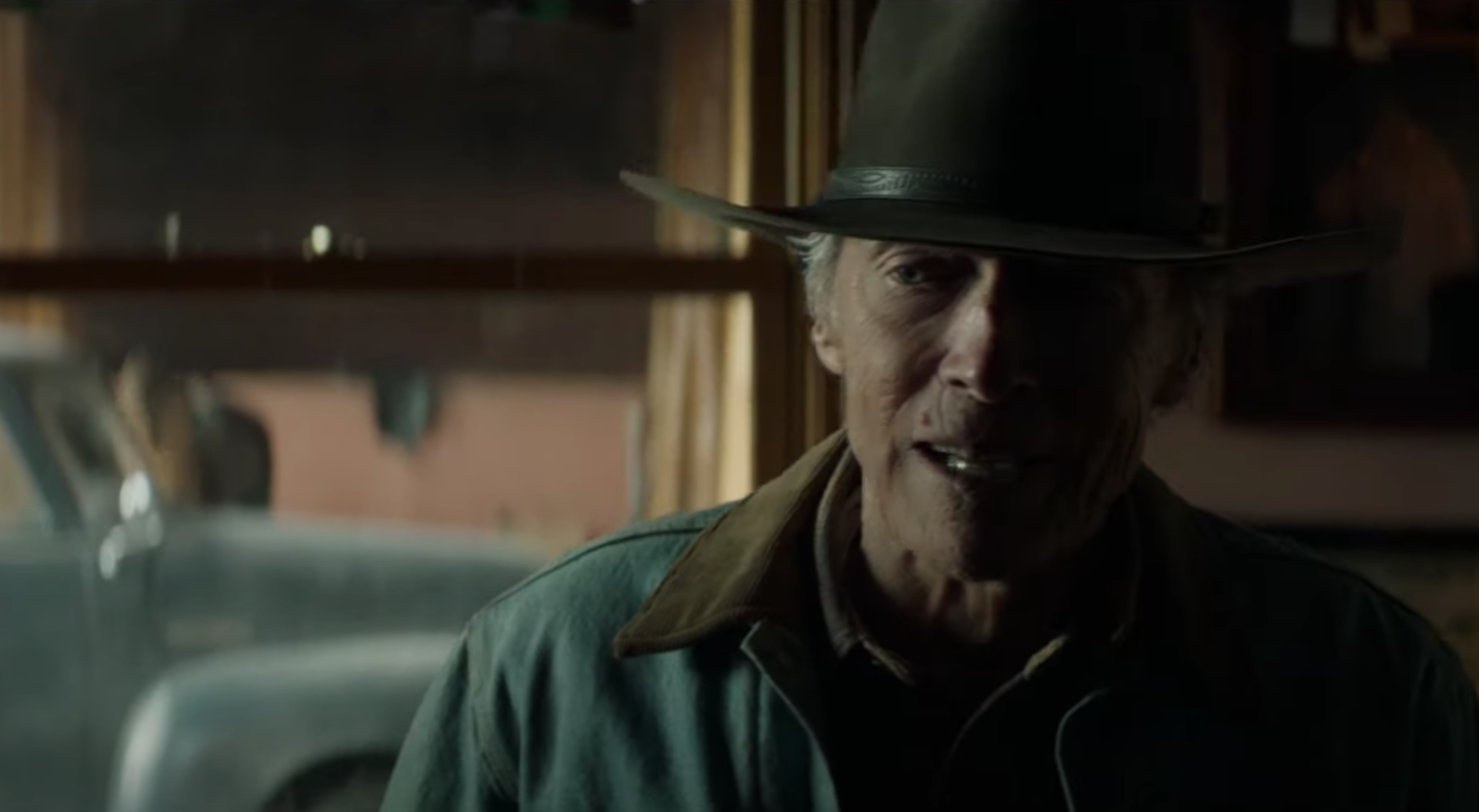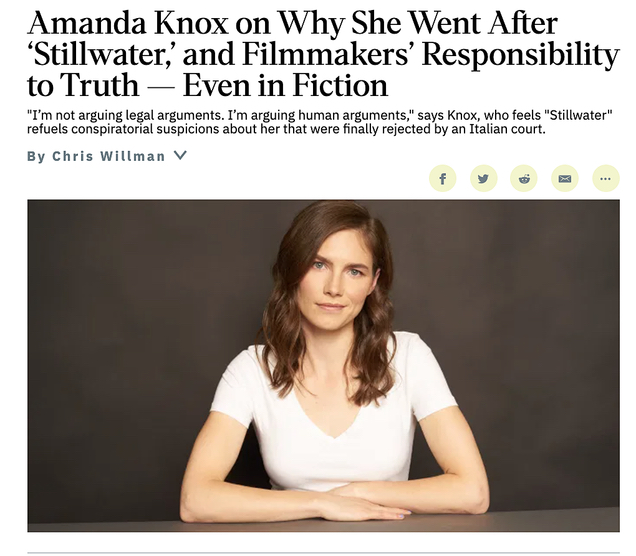An excellent job of selling a half-century-old film — the forthcoming, undoubtedly spiffy 4K Bluray of Stanley Kubrick‘s A Clockwork Orange (9.21.21).
From yesterday’s [8.5] pay-walled assessment: “It’s still a crisp, clean, mesmerizing film, and I’ll never stop worshipping that final shot of those well-dressed 19th Century couples clapping approval as Alex and a scampy blond cavort in the snow. But this is nonetheless one really cold film. And yet at the same time (and this is what makes Orange such an odd duck) it’s genuinely amusing here and there. Every line and gesture delivered by Michael Bates‘ chief prison guard is a hoot, and I chuckle every time I see that fat, middle-aged fuckface making kissy-face gestures at Malcolm McDowell‘s Alex in the prison chapel.
“At the same time I can’t honestly say that I like A Clockwork Orange much any more. I was always more impressed with the scene-by-scene verve than what it all amounted to in the end. I still respect the visual energy and exquisite 1.66:1 framings (John Alcott was the dp) and the Wendy Carlos meets Gene Kelly meets lovely lovely Ludwig Van musical score, and I still “admire” the tone of ironic ruthlessness and even fiendishness, but I’m not even sure if I like McDowell’s performance any more. (I feel a much greater rapport these days with his Mick Travis character in Lindsay Anderson‘s If…) I respect Orange historically, of course, and I still love the stand-out moments from the flawless first act, but it hasn’t delighted me overall for years.
“A Clockwork Orange was the first Kubrick film that felt wholly misanthropic** — a high-style show-off movie that sold audiences on the idea that Kubrick-stamped cruelty and brutality were palatable — that irony and arch acting styles somehow changed the game. But it was always more amoral than moral, and pretty much devoid of human compassion. Orange has 23 significant characters with noteworthy dialogue, and only one could be honestly described as decent or humane — Godfrey Quiqley‘s prison chaplain.”


